Volodymyr Zelensky: Year of tragedy and turmoil that turned comedian president into ‘Ukraine’s Churchill’
Ukraine – a year of war: When he ran for leader, Zelensky’s main job was to convince the public he was serious. Now, writes Kim Sengupta, the whole world is taking the former TV star seriously as one of the great political leaders of his time

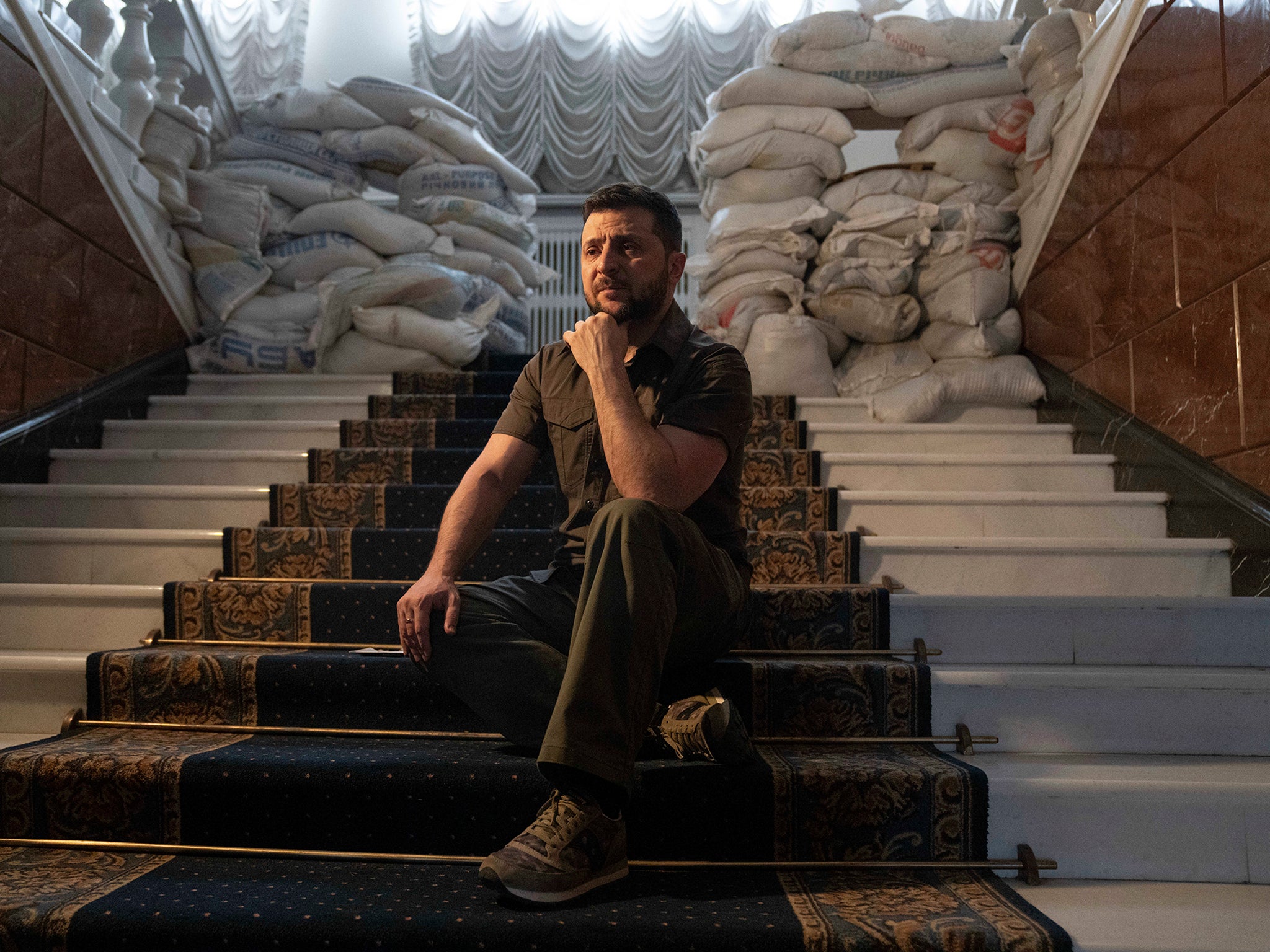
Your support helps us to tell the story
From reproductive rights to climate change to Big Tech, The Independent is on the ground when the story is developing. Whether it's investigating the financials of Elon Musk's pro-Trump PAC or producing our latest documentary, 'The A Word', which shines a light on the American women fighting for reproductive rights, we know how important it is to parse out the facts from the messaging.
At such a critical moment in US history, we need reporters on the ground. Your donation allows us to keep sending journalists to speak to both sides of the story.
The Independent is trusted by Americans across the entire political spectrum. And unlike many other quality news outlets, we choose not to lock Americans out of our reporting and analysis with paywalls. We believe quality journalism should be available to everyone, paid for by those who can afford it.
Your support makes all the difference.I need ammunition, not a ride”, Volodymyr Zelensky’s response to Joe Biden’s offer to fly him and his family to safety in the US as Russian troops and tanks closed in on Kyiv will remain one of the seminal quotations of the Ukraine war.
It was his focused drive to secure Western military aid and not just expressions of support, one of the latest chapters of which took him to London, Paris and Brussels, that saved the Ukrainian president's country from the occupation and regime change Vladimir Putin wanted.
The Ukrainian leader’s determination to stay with his people in the coming storm was in stark and salutary contrast to the way another American ally, Ashraf Ghani, and his ministers had fled when Kabul fell two years ago to the Taliban.
It was quite apparent to those of us who were in Kabul and Kyiv during both of those periods the effect of the contrast.
In Afghanistan, the panicked flight of Ghani and his government helped end the dwindling resistance to the Taliban. For Ukrainians the defiance shown by Zelensky played a role in stiffening the resolve of civilians at a time when there was a general exodus towards the border. The same was true for soldiers who were facing seemingly overwhelming odds.
One cannot overstate the boost in morale when the president emerged from Mariinsky Palace to walk the streets and show he was still there as missiles and bombs struck the city. What added to the personal bravery were the reports that Chechen fighters sent by Putin’s ally, Ramzan Kadyrov, were hunting Zelensky. There was a series of firefights in the city and we were shown dead bodies of what were described as enemy infiltrators intent on assassination.
Since those days in February last year, Volodymyr Zelensky has been transformed. From a comedian-turned-politician, who was really only familiar to those with an interest in Ukrainian affairs, to one of the most well-known figures in the world.
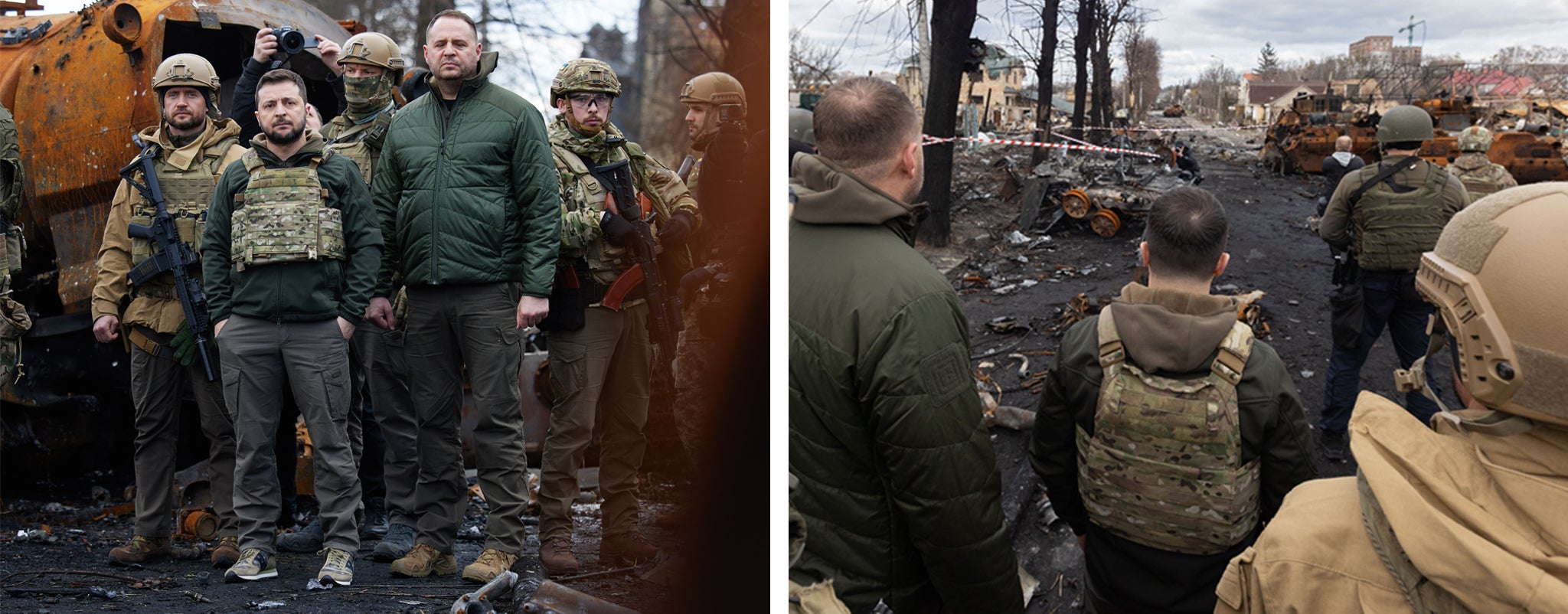
Zelensky has been lauded by world leaders and made the keynote address at the UN General Assembly and Security Council. He was Time magazine’s ‘Person of the Year’ for 2022 and streets have been named after him abroad, including in the UK.
He will continue to play a key role in geopolitics in the coming year. He may be the leader who ensures that Ukraine joins Nato and the European Union. And both the Western alliances have been strengthened and more unified in supporting Ukrainian resistance in the conflict.
Zelensky has received approbation from allies and insults from adversaries. President Biden told him in a meeting: “It is an honour to be by your side”. Emmanuel Macron held him up as a “personification of honour, freedom and courage”. Boris Johnson, a steadfast supporter of Ukraine declared he was “like Churchill… giving the Ukrainian people their roar”.
To the Kremlin, the Ukrainian president is a “Western puppet who provoked the war”. To Dimitry Medvedev, the former Russian president and prime minister, Zelensky “is like Hitler… leading a Nazi regime”. As for the American right, to supporters of Donald Trump like the broadcaster Tucker Carlson, Zelesnky appearing in Congress in his trademark military olive t-shirt gives the impression of someone “dressed like the manager of a strip club to demand money” forcing the US into a needless war.
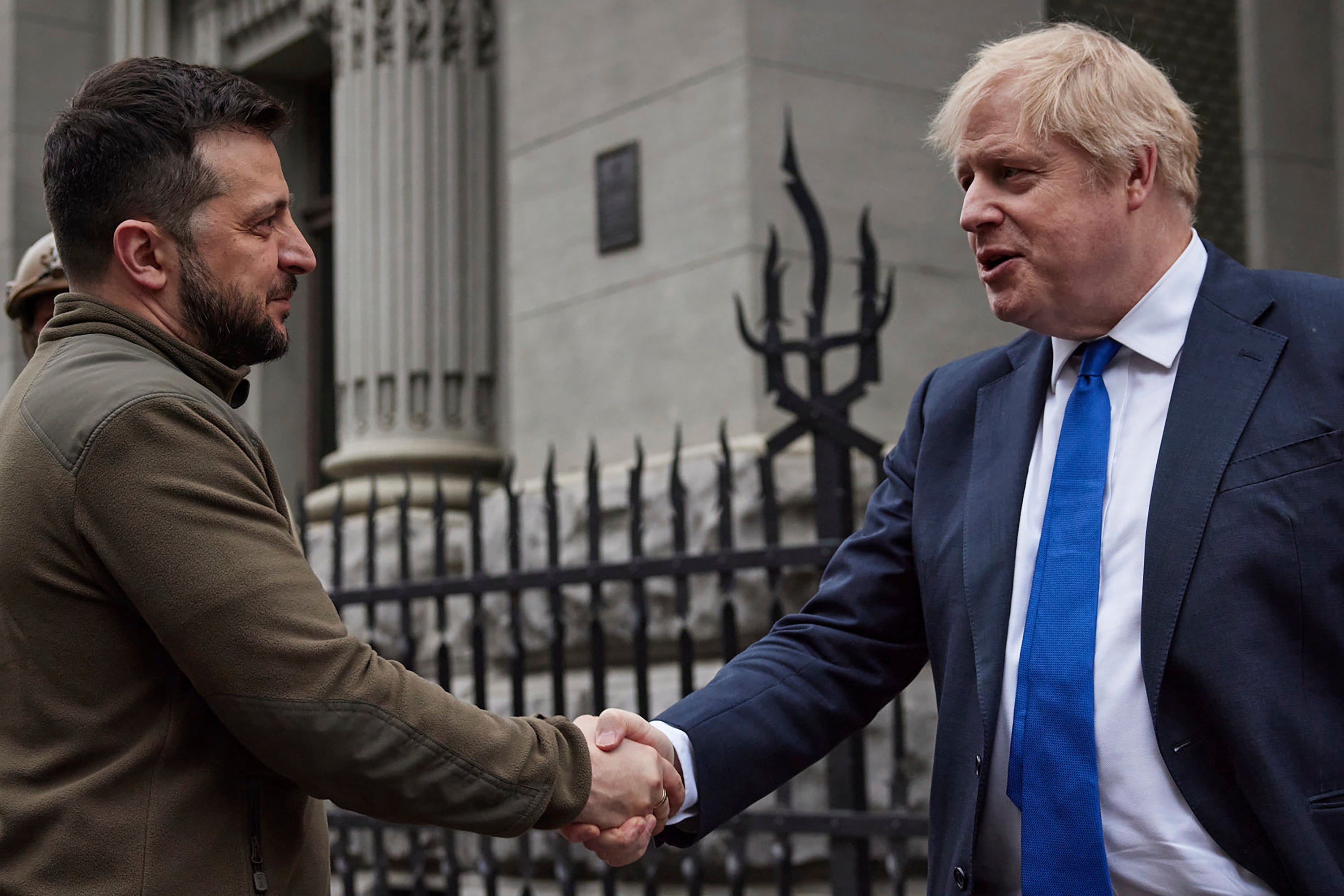
Zelensky was born in 1978 in a working-class Jewish family in the city of Kryvyi Rih, and grew up in a Russian-speaking household. His grandfather, who had served in the Red Army in the Second World War, lost his father and three brothers in the Holocaust.
Zelensky rose to fame playing on television an ordinary man who finds himself president through extraordinary circumstances. The character, Vasily Goloborodko, wins at the polls after a viral video by his pupils shows him ranting against corruption.
The name of the television series, Servants of the People, became the name of Zelensky’s political party when he ran for president in 2019. His main challenge at the time was to convince people that he was serious. His campaign slogan was “I’m not kidding.”
The public could be forgiven for thinking it was a publicity stunt. Zelensky had not been involved in the momentous period in the country’s politics which saw the Orange Revolution unfold in 2004 and 2005 and the Maidan uprising of 2014 which led to the overthrow the pro-Kremlin President Viktor Yanukovych.
Zelensky had avoided compulsory military service during the conflict with Russian-backed separatists in eastern Ukraine which followed, leading to jeers later from his political opponents of draft-dodging. Ironic now in the light of what was to happen.
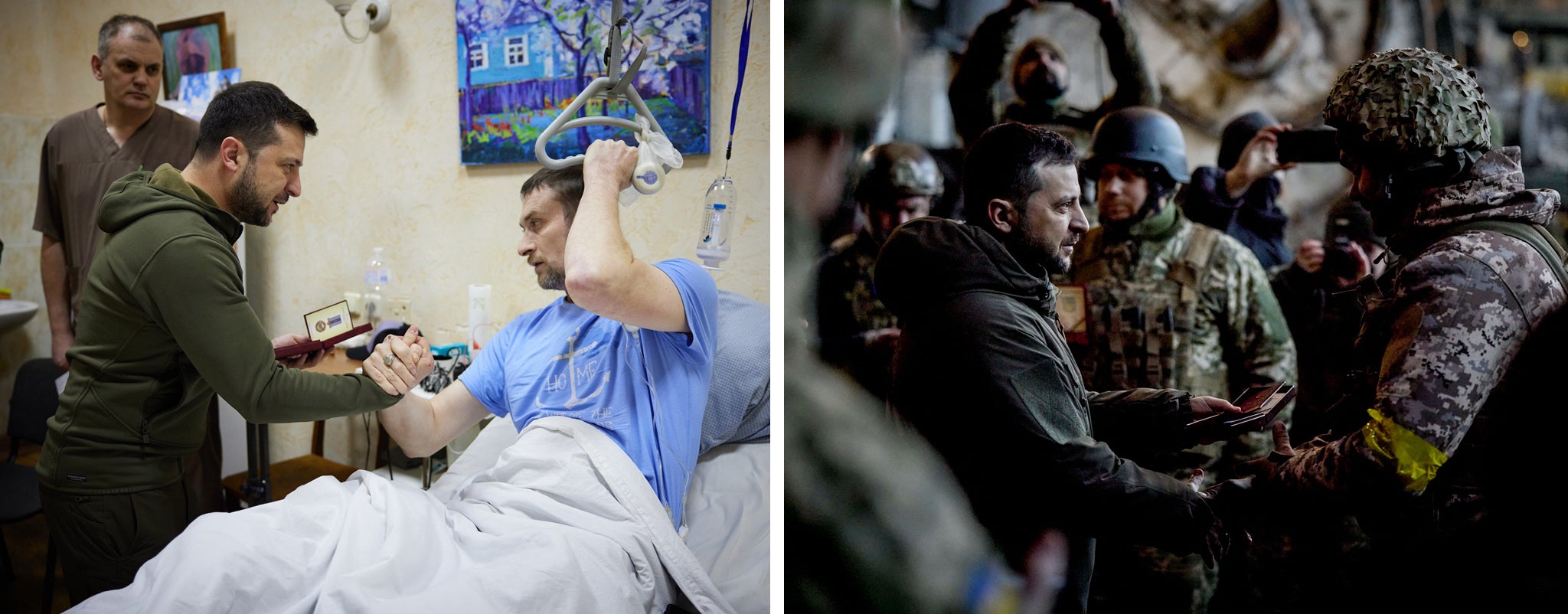
There were also questions about the influence of his chief backer in the election, Ihor Kolomoisky, a controversial billionaire oligarch whose media outlets provided extensive coverage and logistical back-up during Zelensky’s successful presidential campaign.
One of Zelensky’s closest advisors, Andriy Bohdan, was also Kolomoisky’s main lawyer who was representing the oligarch in a court case against the government over the nationalisation of his Privat Bank. There were also questions about Kolomoisky’s funding of a private army, the Azov Battalion (now an official Ukrainian military unit) during the separatist conflict, given its hard-right connections.
Zelensky had also avoided any major political debate with his opponent, the incumbent president Petro Poroshenko, the chocolate manufacturing oligarch. Little was known about Zelensky's manifesto when he won the election, apart from a pledge of “Ukrainian centreism” and ”a big anti-corruption drive”.
There was a perception at the time – 2019 – that having got to power, Zelensky and his coterie were at a loss as to what to do. It was as if they were surprised by their success. Serhiy Haidai, a Ukrainian political strategist aid: “They thought it could not happen, that Volodymyr was just playing. But when he won, they were even more confused. They didn’t know what to do, because they understood what a responsibility it was and that their old life was over.”
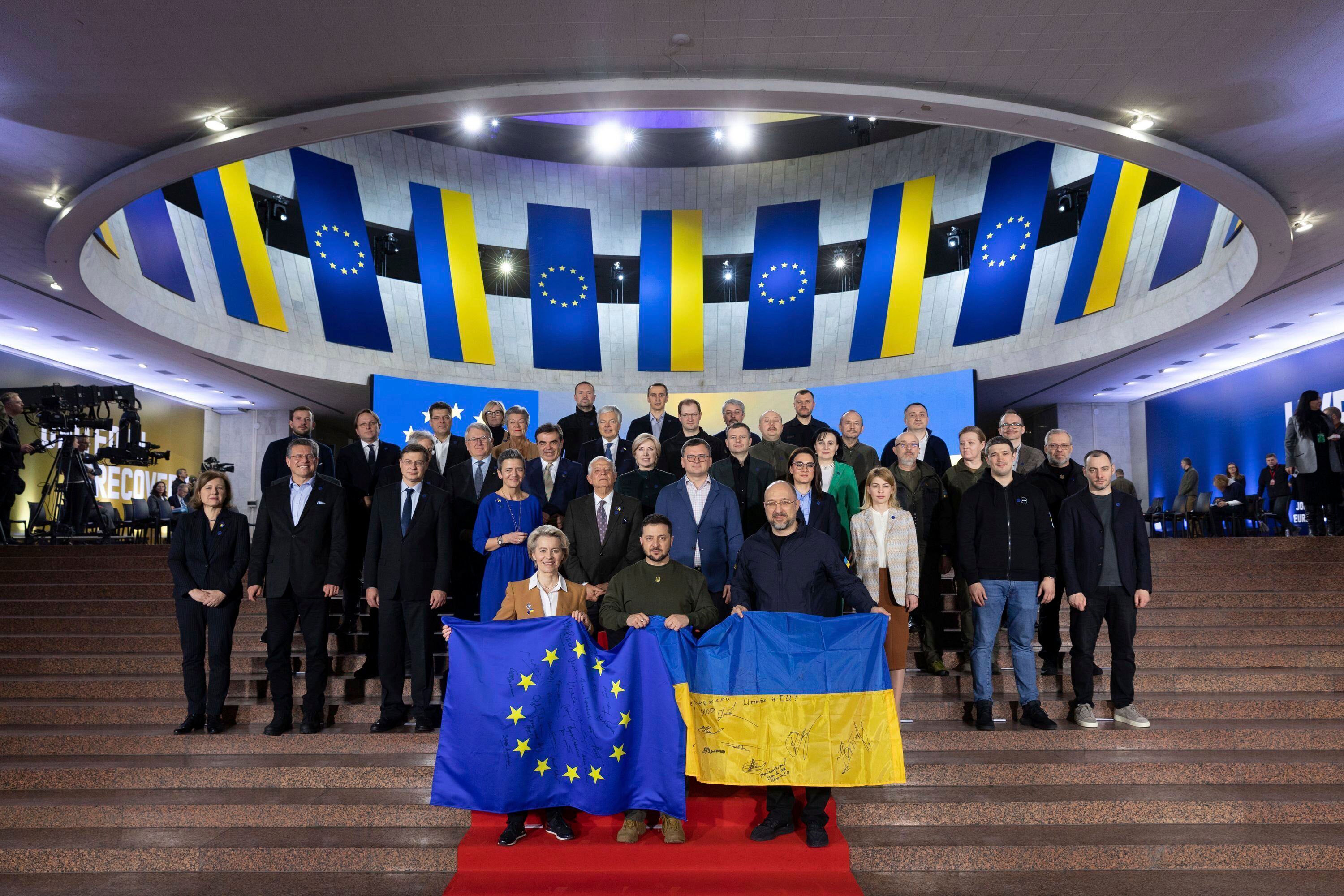
There were missteps: like his television alter ego, Vasily Goloborodko, the new president appointed some of his friends to senior posts. Some were accused of corruption, some of malpractice, some of sheer incompetence. Zelensky’s international standing was not particularly high. There were unfavourable comparisons by Western diplomats and politicians with Poroshenko, a physically imposing man who had met European leaders, Barack Obama and Putin.
Zelensky looked ill-at-ease on big occasions, something highlighted at a joint press conference with Donald Trump when the then-US President was trying to bully him into ordering an investigation into the financial affairs of Joe Biden’s son, Hunter, in Ukraine. Trump’s suspension of military aid as a pressuring tactic later helped led to Congressional impeachment investigations.
At that point, Zelensky was accused of being soft on Russia in his efforts to bring the separatist conflict in the east – on slow-burn at the time, but having cost 13,000 lives – to an end. As he was planning to meet Putin for talks in Paris near the end of 2019, demonstrators gathered in Kyiv to chat “ no to capitulation”, “ no sell-out” and “ treason”.
There was alarm that Kolomoisky, the former Azov funder – still seen as wielding enormous influence on Zelensky – was suggesting that Ukraine should open channels with Moscow in the face of hostility from the Trump administration. The oligarch’s volte-face, said critics, was self-serving; he feared for his business interests in Western demands for radical commercial reforms in the country.
Accounts resurfaced of how in 2014, when Russian troops invaded eastern Ukraine, Zelensky, performing as an actor in Moscow, joked that the soldiers were not actually in Ukraine, but “just standing at the border, and the Ukrainian border is just slightly pushed forward.”
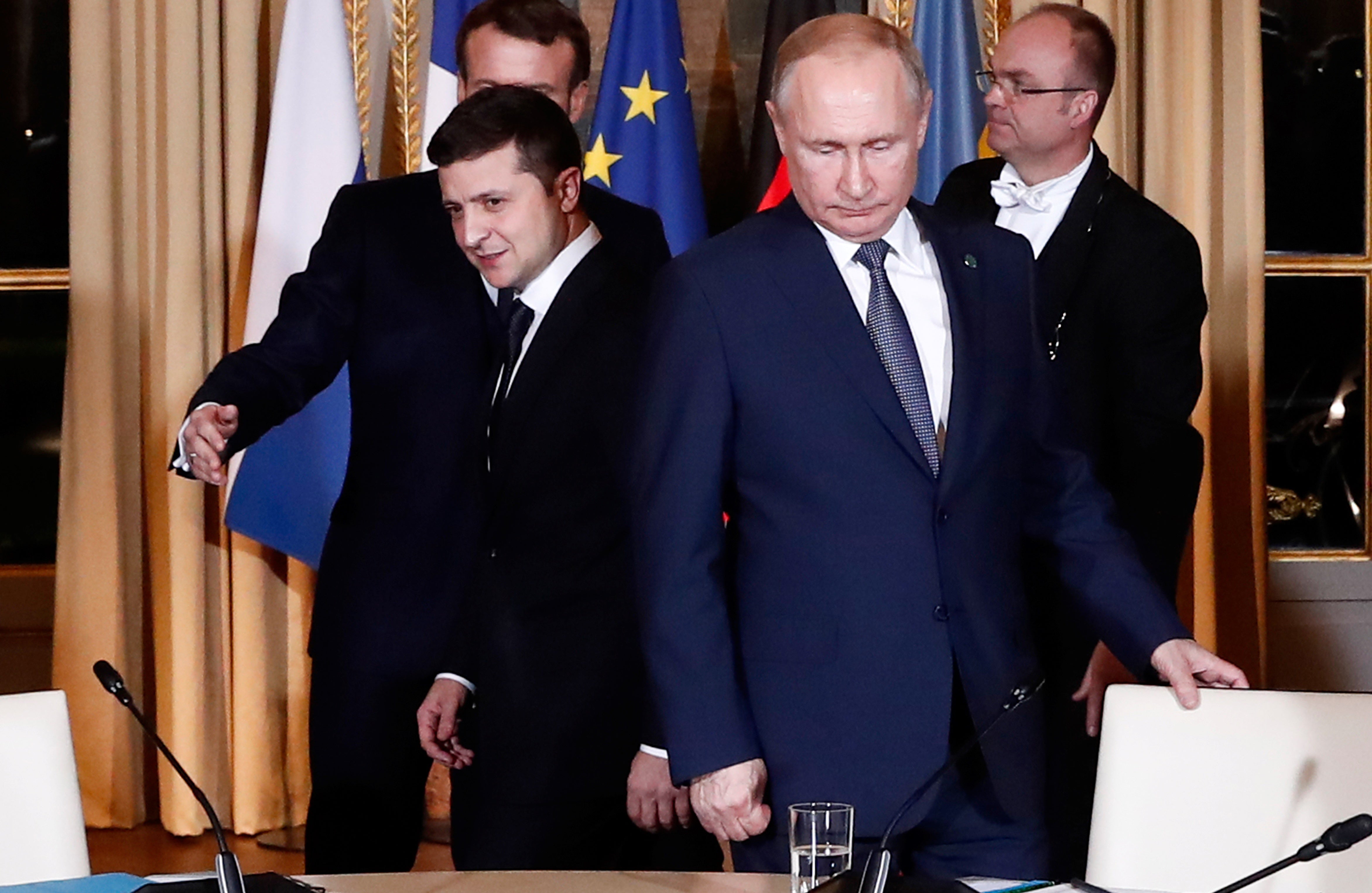
There were some positive noises about Zelesnky in Moscow. His Jewish background, it was felt, would lead him to crackdown on Ukrainian hard-right nationalism. “I think he is sincerely willing” to compromise with Russia, Putin said of Mr. Zelensky. “It is his sincere conviction, at least his striving.”
But the Paris talks led nowhere, and neither did subsequent negotiations. Moscow accused Ukraine of blocking a peace deal by not implementing part of a ceasefire accord astern Ukraine known as the Minsk agreements (Putin would later declare the Minsky agreements "dead" just before his invasion of Ukraine last year). Kyiv also brought in laws on use of the Russian language and shot down Russian media outlets, including those owned by Viktor Medvechuk, Putin’s friend and the father of one his godchildren. When Medvechuk was subsequently accused of treason and placed under house arrest, the Russian President railed that Zelinsky’s government had turned “steadily into an antipode of Russia, an anti-Russia”.
As Russian troops gathered through the autumn of 2020 and the early months of last year, US and British intelligence were increasingly convinced that Putin was aiming for a full scale invasion and the capture of Kyiv. To continue the Afghan analogy, this was in stark contrast to their lack of information when the Taliban took over after a collapse of government forces.
Zelensky and his ministers tried to downplay the threat. They were accused of being unrealistic and blind to what was about to happen. But each Western warning, amplified in the media, was a financial hammer blow for the already weak Ukrainian economy, and the president was seeking to prevent further damage.
Having survived the initial Russian onslaught after the invasion began, Ukraine has clawed back lost territory and its forces are now getting ready for a new offensive. Kyiv is also attempting to fast-track membership of Nato and European Union.
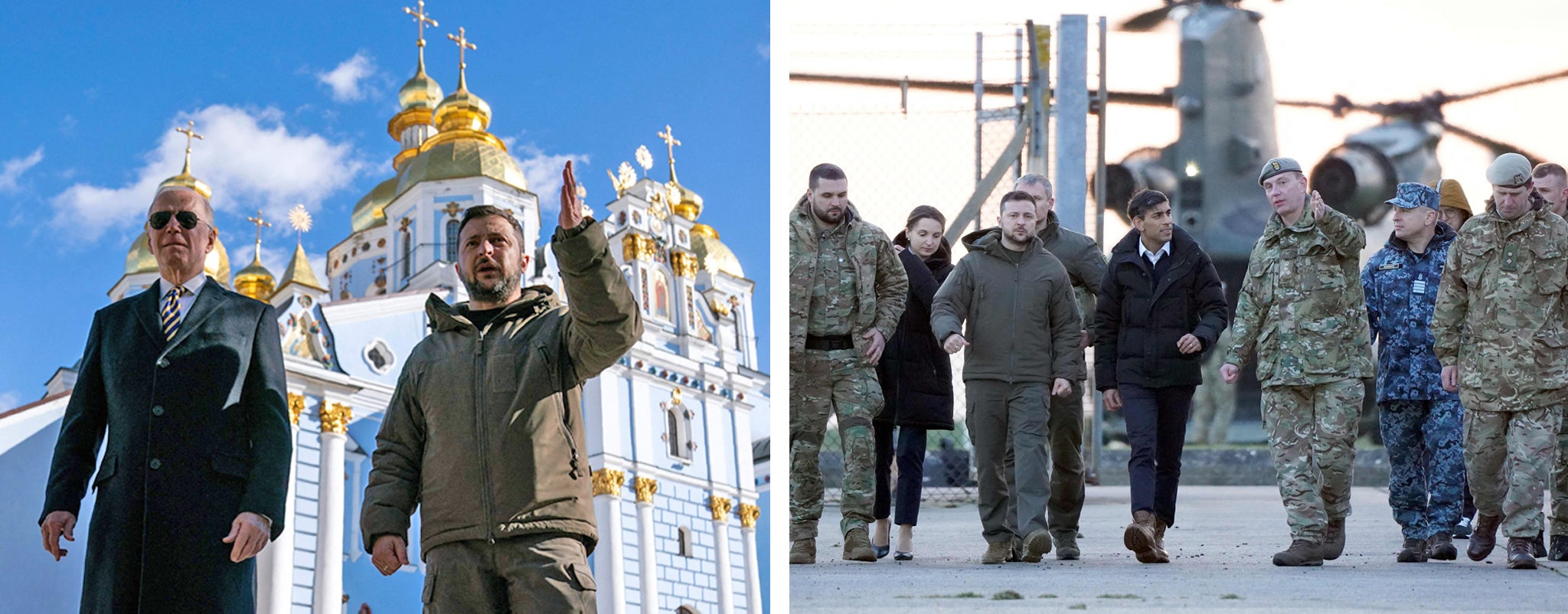
One particular problem that continues to dog that process and Ukraine's dealings with international institutions is corruption, the issue that Zelensky's slim electoral platform was built on when he ran for president. The International Monetary Fund (IMF) has previously tied its agreement to extend loans to Kyiv to the condition that the government take steps to tackle malpractice. Anti-corruption reforms are one of key demands of the European Union for membership.
Where this has been most visible during the invasion, is the changing of ministers and officials in Zelensky's government. It was not a coincidence that prior to a recent meeting with European Union officials in Kyiv there was a slew of forced resignations and firing of ministers and officials following claims of graft. There were also raids on homes and offices of prominent public figures and oligarchs. The Ukrainian security service, the SBU, was quick to push out images of one particular operation – that involving former Zelensky ally Kolomoisky. The 59-year-old oligarch looking bemused, standing with his arms folded and wearing a tracksuit, as his house in Dnipro was searched by investigators. The investigation of his former mentor was a potent gesture by President Zelensky to show that he was very much in charge in internal politics as well as conducting the war.
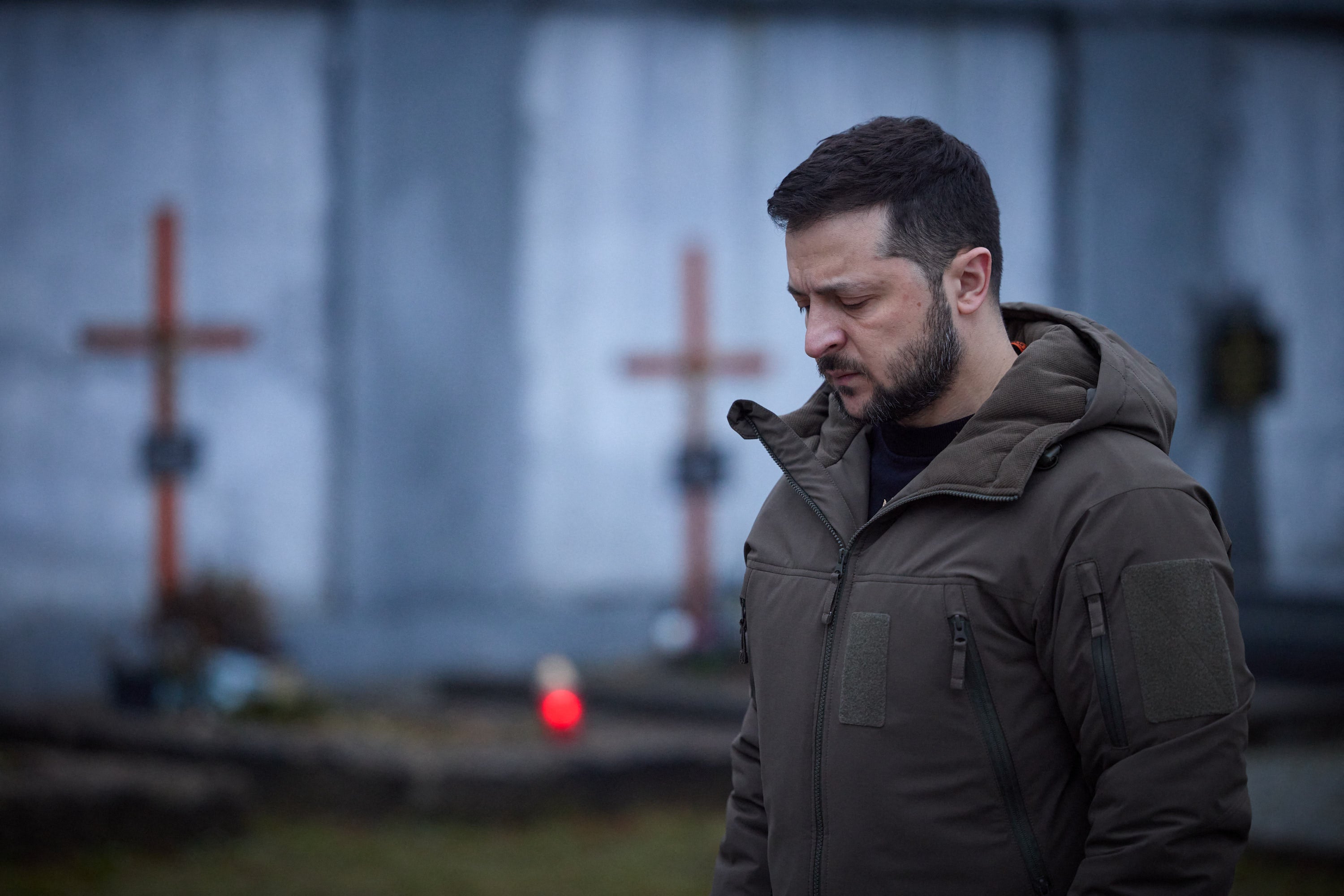
The Ukraine war has taken many twists and turns in its course. The survival of Kyiv and Kharkiv – Ukraine’s second city with a predominantly Russian-speaking population – after the invasion was a close run in the early days of fighting. Zelesnky faced criticism for not withdrawing troops from Mariupol, when the city came under Russian occupation, resulting in thousands being taken prisoner.
Last summer, the Russians were making significant gains in the east, taking the cities of Lyman, Sievierodonetsk and Lysychansk. And the Donbas – Ukraine's industrial heartland made up of the regions of Donetsk and Luhansk, which Putin wants to control – was on the verge of being overrun by the Russians. But the arrival of Western weapons, High Mobility Artillery System (Himars) and Multiple Launched Rocket Systems (MLRS) turned the tide.
“I need ammunition, not a ride,” Volodymyr Zelensky told Biden as this war started. What has unfolded since then – including a highly-symbolic visit to Kyiv by the US president in recent days – shows the result, one of seismic significance, when the call was answered. It has also established Ukraine’s President as one of most important political leaders of his time.
Join our commenting forum
Join thought-provoking conversations, follow other Independent readers and see their replies
Comments